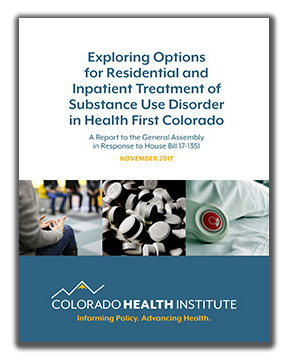Policymakers can be overwhelmed by the opioid epidemic and at a loss for how to respond. But there is broad agreement among experts about ways to combat it.
CHI's research and work with subject matter experts has helped us identify three pillars of a policy response to opioids: Prevention and Provider Practice, Treatment and Harm Reduction.
Prevention and Provider Practice
The best way to combat substance use disorder is to prevent people from trying substances in the first place. Traditional prevention programs can help provide the social supports to keep young people from turning to drugs. In the case of opioids, the vast majority of people who misuse both prescription and heroin began with a legally obtained prescription. This points to the role of medical providers in stemming the widespread use of opioids for pain.
Examples of policy steps include:
- Resources to steer youth and adults away from substance use.
- Prescriber education about the risk of opioid dependency and alternative pain management treatments.
- Smaller initial supply of prescription painkillers.
Treatment

Many people want to be free of opioid dependency. There's an evidence-based range of treatment options that are tailored to each specific person's needs.
Examples of policy steps include:
- Access to medication-assisted treatment.
- Reduced stigma for those seeking treatment.
- Insurance benefits for range of options, ranging from outpatient therapy to residential treatment.
Harm Reduction
Others who struggle with opioid dependency are not ready for treatment or are unable to access it. For them, harm reduction can help keep them alive and free of diseases associated with injection drug use.
Examples of policy steps include:
- Wide availability of Naloxone (anti-overdose drug).
- Availability of clean needles.
- Supervised injection facilities.
Legislative Progress on Opioids and Substance Use
Colorado's legislature convened a special committee in 2017 to develop responses to the epidemic. That committee wrote six bills that were introduced during the 2018 session. Here is a glance at each bill and where it fits with the three pillars identified by CHI.

